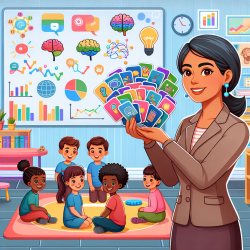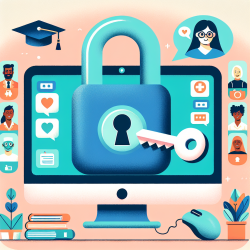The study surveyed 153 parents of preschool and school-age children with disabilities to understand their experiences with distance learning during the pandemic. The findings highlighted three main themes:
- Special education and related service hours were decreased during virtual learning.
- Children were unable to participate in virtual learning without significant adult support.
- Parents were often unable to provide their children with assistance due to other commitments.
These themes underscore the need for more effective strategies in delivering special education services remotely. Here are some recommendations based on the study’s findings:
1. Enhance Communication and Support
Parents expressed a need for better communication and support from schools. Practitioners should establish regular, clear communication channels with parents to provide guidance and address concerns promptly. This can include weekly check-ins, detailed lesson plans, and clear instructions for assignments.
2. Provide Flexible Learning Options
Flexibility in learning schedules and deadlines is crucial. Allowing children to complete assignments at their own pace and providing asynchronous learning options can help accommodate varying needs and schedules. This approach can reduce stress for both parents and children.
3. Offer Technological Assistance
Many parents reported difficulties with the technological aspects of distance learning. Providing training sessions for parents on how to use educational platforms and offering technical support can mitigate these issues. Schools can also supply necessary devices and internet access to families in need.
4. Increase Adult Support
The study found that children often needed constant adult support to engage in distance learning. Schools can explore options such as assigning aides or tutors to work with students remotely. Additionally, providing parents with strategies to support their children’s learning can be beneficial.
5. Focus on Social Skills
Parents were concerned about the loss of social interaction during distance learning. Incorporating virtual social activities, such as group projects and online clubs, can help children maintain and develop their social skills. Schools should also consider safe, in-person interactions when possible.
Encouraging Further Research
While this study provides important insights, more research is needed to develop and refine strategies for delivering special education services during crises. Practitioners are encouraged to engage in further research and share their findings with the broader educational community.
To read the original research paper, please follow this link: “This will likely affect his entire life”: Parents’ views of special education services during COVID-19.










